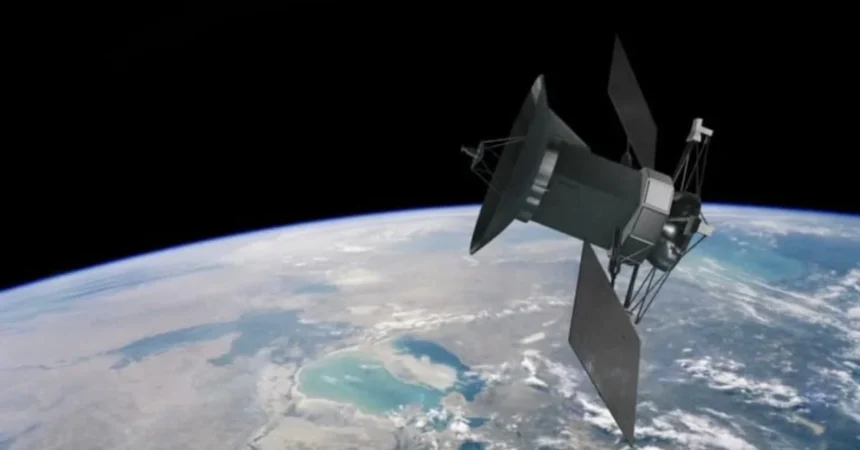The Government of Pakistan has reached a significant agreement with Japan to enhance its weather monitoring and flood forecasting capabilities. This ambitious project aims to install 45 telemetry stations and five automatic weather stations across the country, representing a crucial step toward better managing flood risks, which have become increasingly prevalent due to climate change. With a projected cost of approximately Rs5.2 billion, the initiative will be executed over a two-and-a-half-year timeline and is expected to significantly improve the country’s capacity to respond to natural disasters.
Project Overview and Objectives
The primary objective of this project is to bolster Pakistan’s infrastructure for flood forecasting and weather monitoring. By increasing the number of operational weather monitoring stations, the government aims to deliver more timely and accurate weather data. This is critical for effective disaster preparedness, especially in regions that are historically prone to flooding.
The initiative comes at a time when Pakistan faces escalating climate-related challenges. The country has experienced catastrophic floods in recent years, leading to extensive damage to infrastructure, loss of life, and significant economic setbacks. By investing in advanced meteorological technology, the government seeks to minimize the impact of future flooding events.
Financial Breakdown and Contributions
The total estimated cost for the project is Rs5.2 billion, of which the Japan International Cooperation Agency (JICA) will contribute around Rs4.11 billion, covering approximately 80% of the overall expenses. The remaining Rs1.01 billion will be funded by various Pakistani agencies, including the Water and Power Development Authority (WAPDA), the Federal Flood Commission (FFC), the Pakistan Meteorological Department (PMD), and provincial irrigation departments.
JICA’s contribution will also encompass the establishment of a state-of-the-art data center, which will be integral to enhancing the country’s early warning systems for floods. This data center, to be managed by the PMD, will facilitate the efficient analysis and dissemination of critical weather information.
Components of the Weather Monitoring System
The Rs5.2 billion project will feature several key components designed to improve Pakistan’s flood management and weather monitoring capabilities:
1. Telemetry Stations: The installation of 45 telemetry stations will enable real-time data collection on various meteorological parameters, including rainfall, temperature, humidity, and atmospheric pressure. This data will be crucial for predicting weather patterns and potential flood events.
2. Automatic Weather Stations: Five automatic weather stations will be installed to enhance the accuracy and efficiency of data collection. These stations will operate autonomously, providing continuous weather monitoring without the need for manual intervention.
3. Flood Protection Infrastructure: The project will also involve improvements to 1,543 meters of flood protection infrastructure in Khyber Pakhtunkhwa, further safeguarding vulnerable areas against the impacts of flooding.
Geographic Coverage and Target Areas
The project will expand the number of weather monitoring stations in Pakistan to a total of 110, with a focus on regions that have historically been vulnerable to flooding. Specifically, 84 sites have been identified in Punjab, while 26 stations will be located in Khyber Pakhtunkhwa (KP).
The Central Development Working Party (CDWP) has already approved the “Project for Flood Management Enhancement in the Indus Basin,” which is valued at Rs5.178 billion. This initiative will focus on flood-prone districts, including:
-Punjab: Attock, Gujranwala, Jhang, Jhelum, and Sialkot
Khyber Pakhtunkhwa: Haripur
By concentrating efforts in these districts, the government aims to enhance early warning systems and improve response capabilities in the most affected areas.
The Role of JICA in the Initiative
JICA’s involvement in this project highlights its ongoing commitment to supporting Pakistan’s development efforts, particularly in the realm of disaster risk reduction. The agency has been actively engaged in various projects aimed at enhancing infrastructure, improving public services, and addressing climate change challenges in Pakistan.
Through its financial and technical support, JICA aims to promote sustainable development and resilience in communities that are at high risk of flooding. The establishment of a robust weather monitoring system is critical for the country, where climate change has intensified the frequency and severity of natural disasters.
Expected Impact on Flood Preparedness
The successful implementation of this project is anticipated to have a transformative impact on flood preparedness and response in Pakistan. With an expanded network of weather monitoring stations, the government will be better equipped to:
1. Issue Timely Warnings: Enhanced monitoring capabilities will allow for quicker and more accurate warnings to be issued to communities at risk, potentially saving lives and minimizing property damage.
2. Inform Policy Decisions: Reliable weather data will provide policymakers with the information necessary to develop effective flood management strategies and allocate resources appropriately.
3. Enhance Community Resilience: By providing communities with timely information and resources, the project aims to empower local populations to prepare for and respond to flooding events.
Addressing Challenges
While the project promises substantial benefits, it is essential to recognize and address potential challenges to ensure its success. Key considerations include:
Sustainability and Maintenance: A clear plan for the ongoing maintenance and operation of the weather monitoring stations is crucial. Training personnel to manage and operate the equipment effectively will be necessary to sustain the initiative over the long term.
Data Integration: Establishing systems to integrate data from the new monitoring stations with existing networks will be essential for maximizing the utility of the information collected. This integration will facilitate comprehensive analysis and informed decision-making.
Community Engagement: Effectively communicating the significance of the new monitoring systems to communities is critical. Public awareness campaigns should be developed to educate residents about the importance of weather data and how to respond to early warnings.
Long-Term Strategies for Flood Management
In addition to immediate actions taken through the current project, long-term strategies must be developed to ensure sustained success in flood management. These strategies could include:
1. **Investment in Research**: Ongoing research into weather patterns, flood risks, and mitigation strategies will enhance the country’s ability to respond to future challenges. Collaborating with academic institutions and research organizations can facilitate these efforts.
2. **Community Health Initiatives**: Developing community health initiatives focused on disaster preparedness and response will empower local populations to manage risks effectively. Regular training sessions and workshops can foster a culture of resilience.
3. **Strengthening Infrastructure**: Investing in infrastructure improvements, such as drainage systems and flood barriers, will complement the efforts of the weather monitoring project. This holistic approach will enhance overall flood management capabilities.
The Role of Technology
Technological advancements can play a pivotal role in enhancing flood management strategies. Mobile applications that educate users about flood risks and allow them to report potential hazards can empower communities to take proactive measures. Additionally, geographic information systems (GIS) can help health authorities map areas with high flood risks and target interventions effectively.
Innovative solutions, such as utilizing satellite technology for remote sensing and monitoring, can further improve the accuracy of weather forecasts and flood predictions. By embracing technology, Pakistan can enhance its ability to mitigate the impacts of climate-related disasters.
International Cooperation
Addressing the challenges posed by climate change and flooding requires a concerted effort at the international level. Pakistan can benefit from sharing knowledge and best practices with countries that have successfully managed similar challenges. Collaborative efforts with international health organizations and disaster management agencies can provide valuable insights and resources.
Participating in regional dialogues about flood management strategies can foster a collective approach to tackling these issues. By engaging with neighboring countries, Pakistan can strengthen its disaster preparedness and response capabilities.
Public Health Education
Public health education is essential in promoting awareness and preparedness for flooding events. Comprehensive education campaigns should be designed to inform communities about the risks associated with flooding and the steps they can take to protect themselves.
Schools, community organizations, and local governments should serve as platforms for disseminating information and providing training on disaster preparedness. By utilizing various communication channels, including social media, health authorities can effectively reach a wider audience.
The agreement between Pakistan and Japan to procure advanced weather monitoring systems represents a significant advancement in the country’s efforts to improve flood forecasting and management. By investing in technology and infrastructure, Pakistan aims to enhance its resilience against climate-related disasters. Continued focus on community engagement.
#Pakistan #WeatherMonitoring #FloodManagement #JICA #DisasterPreparedness #ClimateChange







